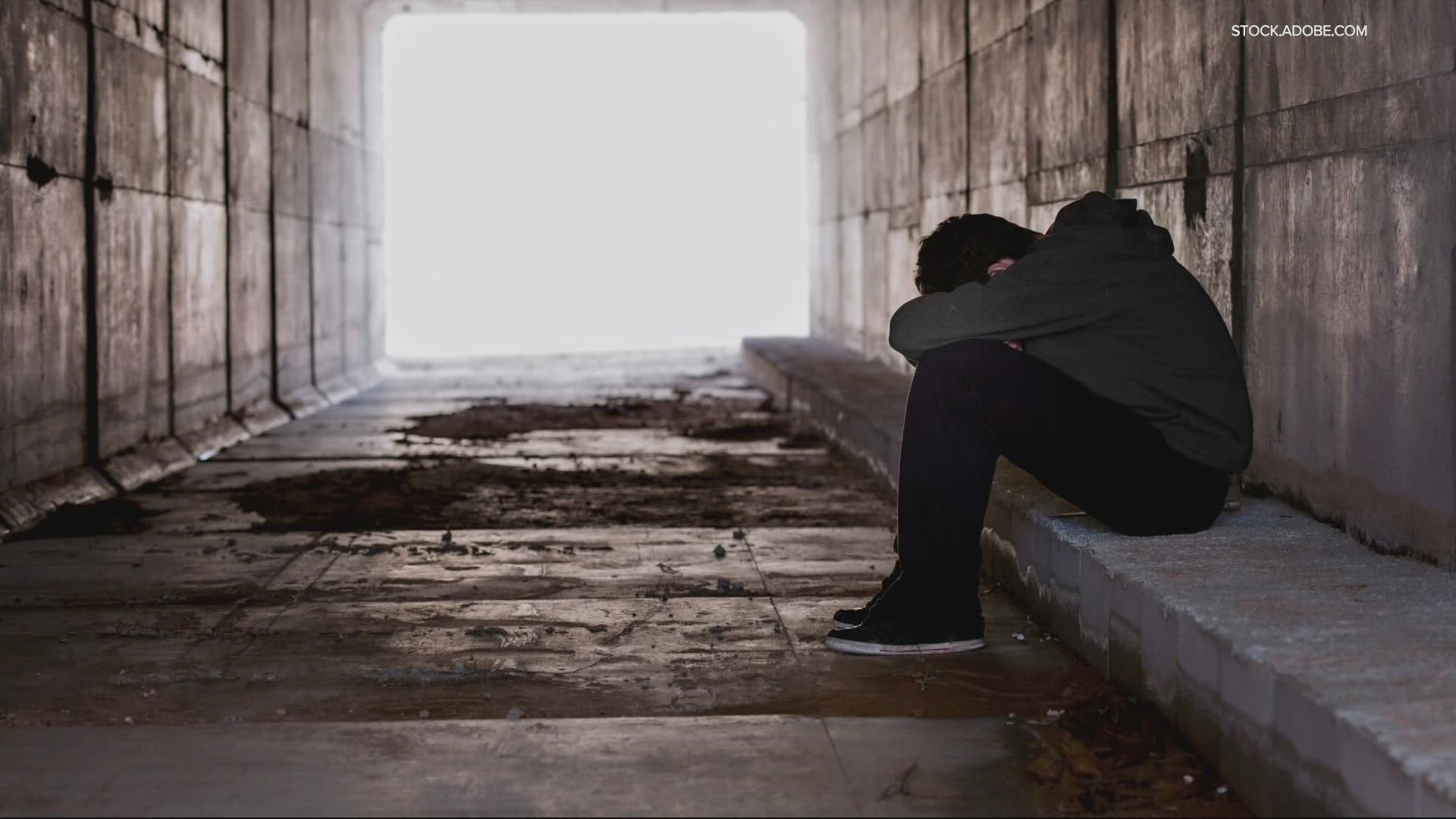VANCOUVER, Wash. — Every year, millions of children, teens and young adults experience some form of homelessness over the course of a year, whether it's couch surfing, sleeping on the streets or staying in shelters.
During National Runaway Prevention Month in November, advocates hope to draw awareness to the issue and drive change, from city-wide proclamations to shows of solidarity by lighting up storefronts green.
"It's really about elevating and amplifying the voices of young people across the country and shining a light on the challenges facing not only youth experiencing homelessness and youth who have left home, but youth more broadly and youth who are experiencing really difficult situations and circumstances," said Susan Frankel, CEO of the National Runaway Safeline.
In the discussion of homelessness, advocates say children and teens can be forgotten and their reasons for housing instability are often different than adults.
"Most young people are not leaving home because they're bad kids. They're leaving difficult and bad situations," Frankel said.
During the pandemic, the Safeline saw a spike in calls from kids and teens hoping to connect to mental health services as they contemplated leaving home. In both Washington and Oregon, many callers reported cases of abuse.
"The fastest growing group of young people that we are seeing reaching out to the Safeline for help are between the ages of 10 and 14, and that that in and of itself is probably one of the most alarming and disturbing trends that we are seeing," Frankel said.
Since 2020, law enforcement in Southwest Washington — both Vancouver Police and Clark County deputies — reported a decrease in missing person and runaway calls, though the agencies do see several hundred reports a year.
"A vast majority of the runaway portion are the kids, teenagers," said Sgt. Chris Skidmore with the Clark County Sheriff's Office.
Dr. Gloria Arroyo and Lisa House, both business owners and mothers, chose to light up green on Nov. 17 to raise awareness for National Runaway Prevention Month, pledging to hear and to help youth in crisis.
"Talk to them, listen to them," Arroyo said. "It might not be your kid but it might be somebody that's in your social circle or one of your kiddo's friends."
"Hopefully [this] gives a kid a little bit of hope," Houser said. "Maybe someone will see something and help them."
Teens and concerned adults can call the Safeline anytime at 1-800-RUNAWAY or visit the website for more information. In 2021, more than 25,000 people reached out to get connected to crisis services.

